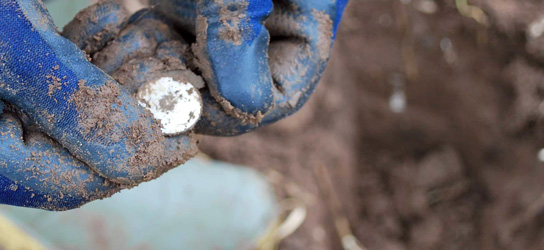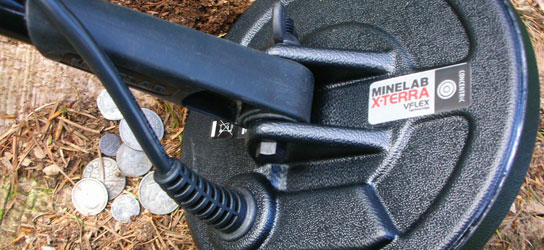As the owner of a metal detector, sooner or later word gets around that you are ‘the go-to person’ in the event of the loss of a person’s wedding ring or other item of sentimental value. Such requests should be welcomed, not only because you are helping to reinforce the positive aspects of the hobby in general, but the opportunity might also offer new search areas previously unavailable.
The first thing to do is to agree on a fee or a reward for your services and an extra bonus would be if you might be granted permission to keep any coins you might find. Now this might sound a bit selfish, but remember you will be carrying out the search on your own time, using your own transportation to get there and using your skill with a metal detector to find something that the person really wants to have back and is quite willing to pay a reward for it!

The next thing is to establish as accurately as possible the circumstances of the loss and most importantly, the condition of the search area. This is important because sometimes the person who contacted you might not be there to show you 'exactly where' they think the loss occurred and you might be left to your own devices to work your way through long grass, weeds and unkempt flower beds and under washing lines. Well kept gardens are not the norm!
In addition to the standard coil on your metal detector the best ’accessory’ tool you can use in the search is a small coil. You will invariably have to scan in between tightly growing plants, because a large amount of rings go missing while gardening. The standard coil can be used on large grassed areas and the small coil can get into the cramped and tight areas with walls and other boundary markers.

The final item you will require (besides very good luck of course) is a set of 'lines and pins'.
Essentially, lines are lengths of twine and the pins are wooden or plastic stakes that can be tied off and placed in parallel lines to form lanes. When a lane has been covered by your very methodical search pattern, one line gets moved over leaving the adjacent line in place until that lane is covered, then the other line gets moved. Using this technique ensures you won’t skip any areas.
As to how much sensitivity to use on your metal detector, if the lost item is a very recent loss then full power isn’t necessary. The Discrimination could also be turned OFF. It’s surprisingly easy to ignore a thin engagement ring lying in knotted grass with just a tiny amount of ‘surface area’ showing to the search coil.
Listening for short 'blip' signals is very important. Gold rings can often be difficult to see, because the grass roots are usually a pale yellow colour same as the ring! So look very carefully. Essentially, if the detector beeps and you cannot find the target after probing around a bit then the target is more likely a deeper item. Of course this is where the 'extra bonus' comes in and by choosing to dig everything some nice old coins can be found while carrying out a jewelry recovery in an old garden... remember it probably wasn’t a garden a few hundred years ago, so any garden has the potential to turn up some very nice finds?
Finally pinpoint the target as accurately as you can with the Pinpoint mode of your detector. Place a piece of cloth in front of the area you intend to dig. The aim is to make a careful incision, using a small trowel or knife and place any soil removed on the cloth. Finding the target without making a mess and pouring the soil back after taking out the target is essential if searching a manicured lawn. You will look like a hero if you find the item and don’t leave a mess!
Good luck and, don’t be embarrassed to ask for a reward and if you want to offer your services for free then that’s fine as well!
Des Dunne




















Comments